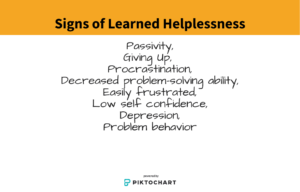Our Students and Educators Are in Crisis But Not For The Reason You Think
Key Points
-
It is not possible to place academics before mental health. We must first address the mental health crisis.
-
Prioritizing purpose is a great way to begin to address mental health.

By: Jesse Kohler, Christine Mason, PhD and Jeff Ikler
“Violence in Schools Seems to Be Increasing. Why?” — EducationWeek, November 1, 2021
“Why So Many Teachers Are Thinking of Quitting” — The Washington Post Magazine, October 18, 2021
“Classroom Time Isn’t the Only Thing Students Have Lost” — The Atlantic, September 7, 2021
“Too Much Focus on ‘Learning Loss’ Will Be a Historic Mistake” — edutopia, April 16, 2021
“Even before COVID-19 pandemic, youth suicide already at record high” — UC Davis Health Newsroom, April 8, 2021
Headlines like these are increasingly common as school personnel and students attempt to adjust to the current stage of the pandemic. But the reality is the pandemic only exacerbated the trauma that many students were already experiencing. Upwards of 40 percent of students in the U.S., according to the National Child Traumatic Stress Network, have been exposed to some form of adverse childhood experiences (ACEs), not to mention those who have been exposed to other potentially traumatic events and stressors.
The impact on student learning is disastrous. To access the part of our brain where cognitive processing takes place, students must feel safe and secure. Environments that produce feelings of stress and anxiety cause the emotional region of a student’s brain to hijack the cognitive processes in unconscious ways. As one neuroscience researcher recently told us, “If students are in a state of high stress or trauma, the part of the brain that facilitates learning is inaccessible. Student academic achievement rests on the shoulders of student wellness.” Thus, contrary to recent criticisms that it’s not the schools’ role to support a students’ emotional wellbeing, neuroscience tells us that educators can play a critical role if traumatized students are to have an equal shot at academic achievement.
Doubling down on academic rigor – however well-intentioned – is not the answer. Our staff and students need a different, long-term approach to schooling, one that balances the traditional intense focus on academics with one that promotes psycho-social-emotional wellbeing. As a middle school principal recently championed during one of our interviews, “The days of us primarily focusing on academics are over.”
And it’s not just students who are in crisis. Staff are burning out at higher levels than ever before. A principal recently informed us that his district had to cancel school for a day because hundreds of teachers called in sick in need of a mental health day. Dysregulated adults cannot help regulate dysregulated children, so it is equally important that we meet the needs of school staff so that our students’ needs are met.
How do we help students develop a sense of purpose and meaning, so that they feel they can have a positive impact in life?
The stress and adversity that everyone is facing is too overwhelming to ignore any longer. Trauma-informed approaches improve outcomes across school environments and create a better place for all people to be. By addressing the needs that students and staff bring with them to school each day, we can help students better engage with their studies, learn, and develop into the contributing members of society that we so desperately need. By understanding how stress impacts brain functions, we can better support regulation, cultivate resilience, and ultimately help people and environments thrive.
To address the overwhelming adversity and chronic stress that so many staff and students face today, we can teach students regulation skills to increase their ability to focus, learn new skills, and problem solve at school. However, it is an insufficient response if we just expect people to work through difficult experiences. We must create environments that prevent adversity and stress in the first place. To reduce the overall impact of trauma, we must transform our school systems to answer two questions:
- When students graduate, what do we want them to be able to do with their knowledge and skills as they confront uncertainty in our complex and rapidly evolving world?
- How do we help students develop a sense of purpose and meaning, so that they feel they can have a positive impact in life?
Many schools, districts, and states have successfully moved toward trauma-informed approaches to create these types of safe and supportive school environments. Our recently launched podcast series — “Cultivating Resilience: A Whole Community Approach to Alleviating Trauma in Schools” — explores promising practices and ways that we can transform the education system to meet the needs of our staff and students. Academics are important, but they’re not more important than students’ mental health and wellbeing. That equal emphasis sets the stage for optimal learning and academic achievement, positive relationships and, ultimately, an improved quality of life.
Jesse Kohler: Executive Director of the Campaign for Trauma Informed Policy and Practice
Christine Mason, PhD: Assistant Clinical Professor at Yale University’s School of Medicine, Department of Psychiatry, Program for Recovery and Community Health, and the Founder and Executive Director of the Center for Educational Improvement
Jeff Ikler: Director of Quetico Leadership Coaching and co-host of “Getting Unstuck: Educators Leading Change”





0 Comments
Leave a Comment
Your email address will not be published. All fields are required.